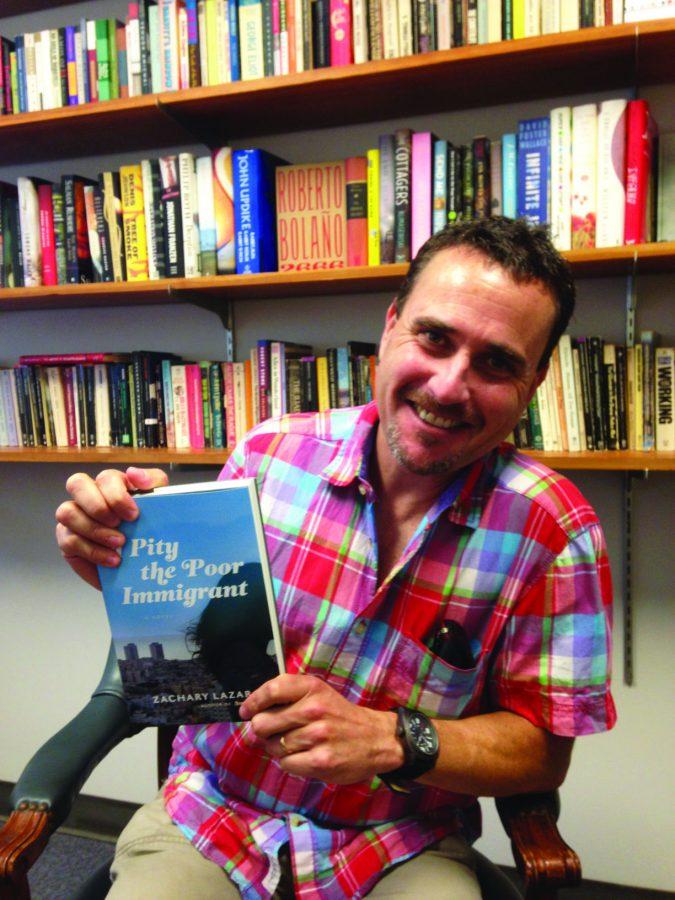Lazar explores ancient and modern legend in new book
August 27, 2014
Professor Zachary Lazar took four years to complete his newest novel, “I Pity the Poor Immigrant.” Hachette Publishing released “I Pity the Poor Immigrant” on April 8. Following publication, Lazar received critical acclaim from periodicals such as The New Yorker and The New York Times.
“It’s a complicated story with many characters,” Lazar said of the premise of the book. “The kernel of it has to do with a real person, Meyer Lansky, a notorious Jewish gangster who tried to get citizenship in Israel in 1972″
Coming from the controversial nature of Lansky’s efforts, Lazar spins a yarn of intricate subplots revolving around Lansky’s Israeli mistress and a journalist from America who investigates a current-day murder. The probe takes her into the world of modern-day crime in Israel and leads to a link to the 1972 story involving Lansky.
Despite the interweaving story lines bouncing between current-day and the early 1970s, Lazar insists the novel comes down to a fairly simple idea.
“The book is about the history of Jews in the 20th century and the issue of finding a home,” Lazer said.
To create a realistic grounding for the novel, Lazar traveled to Israel to visit the physical sites within his story, in addition to performing his usual level of historical research.
“I had never been to Israel before this book,” Lazar said. “There’s this side motif that has to do with King David of biblical fame. I went to a lot of the places [where] his biblical story allegedly took place.”
Despite the dangers involved in creating a story revolving around hot topic issues and set in a volatile area of the world, Lazar remained focused in his efforts to create a thought-provoking novel. This drive undoubtedly stems from Lazar’s writing inspirations, which include worldly authors Don DeLillo, Philip Roth and Joan Didion.
“They are using novels as a way to engage with the world in a deep and illuminating way,” Lazar said.
In addition to investigating the ancient religious grounds of Israel, Lazar steeped into modern Israeli conflicts, as well. He stayed in Tel Aviv, the heart of Israel’s organized crime. During his first visit to Israel in 2010, Lazar narrowly avoided Operation Cast Lead, a three-week-long armed conflict on the Gaza strip. To create an enlightening book, Lazar took the necessary risks in order to fully immerse the reader within the complicated lives of the Israeli people and their struggle to maintain peace.
“The book has much to say about Israel, its politics and history, which is obviously an important topic right now as yet another conflict grinds on in Gaza,” Lazar said. “Novels and other works of art don’t take black and white positions on politics. They deal in ambiguity and nuance, in the hope of showing a different way of looking at a problem.”






















Leave a Comment